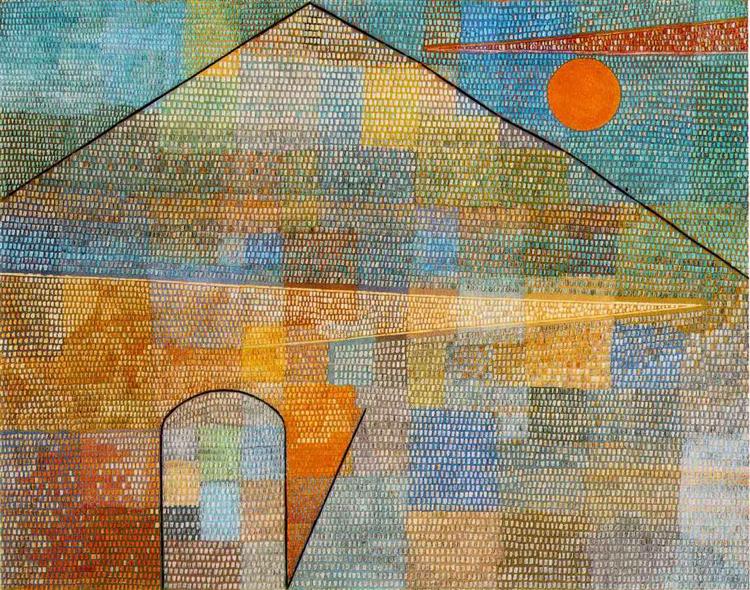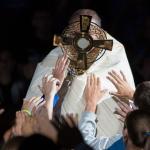How are we to live? What is the good life?

The central question of philosophy. But Christianity raises the stakes from there (as we began to explore in the last post), setting the good life within the limitless dynamism of the Trinitarian processions, revealing the fulness of the good life as an eternal life.
An eternal life has everything to do with the resurrection of the flesh, the realization of new heavens and a new earth in which justice is made visible, a world in which there will be no more death or pain or falling-apart. But such transformation, indeed immortalization, of the visible and bodily depends on the decisive thing: eternal life is life within the limitless Trinitarian play of finding oneself in giving oneself.
In this post, I would like to make a kind of Spirit-focused presentation of Saint Augustine’s great spiritual (or or intrapersonal or “psychological”) analogy for the Trinitarian processions (though in a way that makes more obvious the Thomistic tendency to bring the intrapersonal and interpersonal together), thereby giving this series on the Trinity more of a systematic foundation.
The Excellence of the Third
The good life is a life of spirit. Philosophically, spirit means knowing and loving, the perfective acts of intellect and will. In terms of the powers of the soul, we cannot love without knowing our beloved, which is also to say that loving is the point of knowing. Of course, it’s an ever-intensifying cyclical rhythm: the more we know our beloved, the more we love that person; the more we love, the more we want to know… But though the recurrent operations of the spirit have no upper limit, the logical order is clear, which accounts for the unique excellence of the Third in God, the Holy Spirit.
Each divine Person is excellent in His own way: the First, the Father, most obviously so, as the Source without source. The Second, the Son, is the center in God (and, therefore, as Saint Bonaventure indefatigably traces out, the center of history), the One Who proceeds and from Whom Another proceeds. But the Third, Who proceeds from Father and Son, and from Whom no other proceeds? What’s the excellence in being Third? [We might lapse into Arianism and think, à la The Simpsons, “beautiful gold, so-so silver, and shameful bronze.”] What we must recognize is that the Third is the ultimate in God: the culmination, God as the transcendence of God.
To be Rational is to be Social
Everything culminates in loving, which is the union of our personal knowing and loving with another person’s knowing and loving, in a common spirit of love, a mutual subjectivity. That is, we have the power to know and love precisely to know and love others. (Personal spirit can only be fulfilled in interpersonal spirit; to be the rational animal is to be the social/political animal). This common spirit constitutes and generates new visibilities, new embodiments. We speak of the “spirit of a people,” correlative to a body politic. A man and woman love each other and form one flesh… Common spirit is inherently expansive; it gives rise to children, as well as the strenuous goods of home, city, nation, and all that we nobly create in culture.
The good life is, in the first place, a life of questioning inquiry stirred by the wonders of sheer existence and the manifold good things of this world, luminous in their intelligibilities, as well as by a thirst for self-knowledge, for the common good, and for relieving the plight of agonized humanity. Our desire to know draws us out of ourselves, towards the other.
As one advances in understanding and wisdom, one’s heart grows larger. Knowing gives rise to loving. Our spiritual nature drives towards communion with other persons.
Just So
This is simply because we are made in the image of a God Who is Trinity. As the council fathers of Vatican II put it: “Indeed, when the Lord Jesus prays to His Father that ‘they may all be one…, even as We are one’ (John 17:21-22), opening prospects impervious to human reason, He indicates a certain similitude between the union of the divine Persons and the union of the sons of God in truth and charity. And this similitude manifests that it is not possible for man, who is the only creature on earth that God willed for its own sake, to come to himself fully except through the sincere gift of self” (Gaudium et spes 24).
Why is man the social/political animal? Because God is Trinity. Why is our deepest need to love and be loved? Because God is Trinity.
In a way, nothing is more public than the Trinity. That God is so, is why we are so.
God the Father wishes all humans, through all space and time, to be joined together as one people, in the one Body of Jesus, by the reconciling power of the Holy Spirit. The Kingdom of the Trinity is the Kingdom of every love, of all romance and solidarity.
The good life is a life of spirit. Eternal life is life in the very Spirit of God—and What God IS is infinite knowing and loving.
Eternal life means infinite wonder and infinite learning, and getting to know forever, without comprehending, in endless surprise, the ever-greater Father, Son, and Holy Spirit and every other person within the Trinitarian processions: billions of created persons converging and being raised forever towards the Father, through the Son, in the Holy Spirit.
Which all means that eternal life is falling in love forever.











